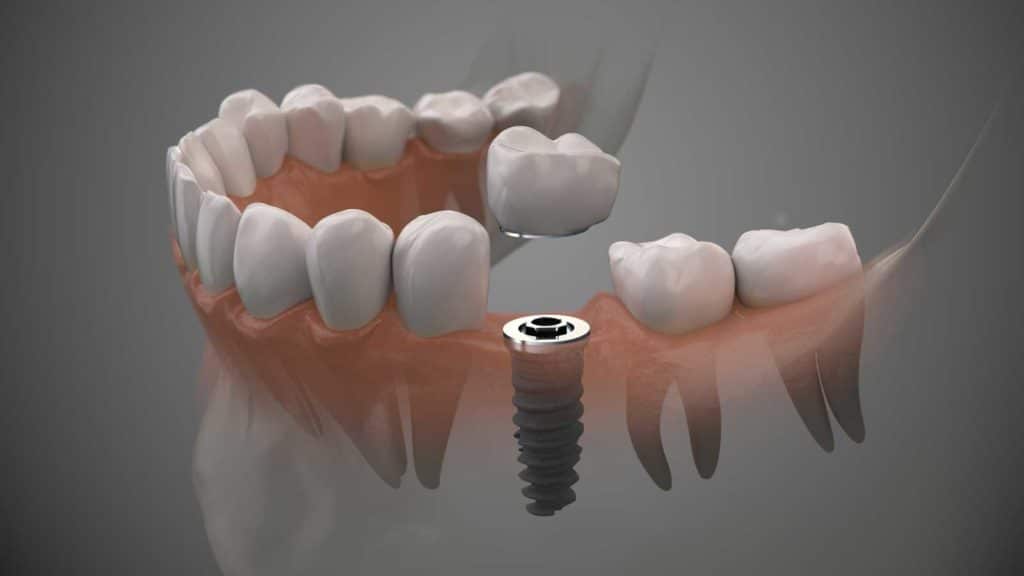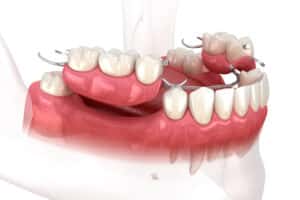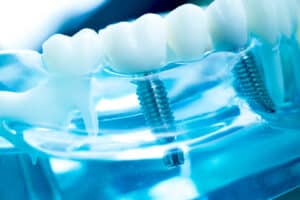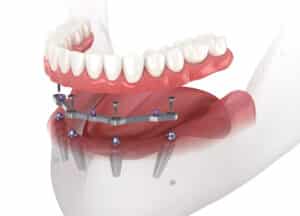Dental implants are a durable and aesthetically pleasing option for replacing missing teeth. Over time, they have become the most preferred option for replacing missing teeth worldwide. If you are also considering tooth replacement with implants, you might have come across the term mini dental implants during your research online. While mini implants may initially seem like a better option than regular implants due to their small size and low cost, they may not suit every patient.
Recently there has been a resurgence in the use of mini dental implants (1.8-2.4mm in diameter). These implants were originally introduced as temporary implants and are now being used as a final solution for patients. This new idea is being promoted by some opinion leaders as an inexpensive solution for patients. My only experience with mini-implants has been the removal of fractured mini-implants, so the idea of taking a one or two-day course and starting to place these flaplessly left me scratching my head.
This article will help you understand the differences between standard and mini dental implants – and explain why conventional dental implants are better, in most cases than mini implants – so you can make an informed decision and choose an option that best suits your dental function and esthetic needs.
Mini Vs. Standard Implants: the Commonalities and the Differences
Mini implants have the same structure and shape as standard dental implants. Both are shaped like a screw and created from pure titanium or titanium alloy. The main difference between the two implants is their size. Regular dental implants are typically 3mm to 6mm wide and 7mm to 15mm long, depending on the missing tooth location and other factors. On the other hand, mini implants are much narrower and smaller, having a diameter of 1.8 – 2.5mm and a length between 12-18mm.
Another difference is that the traditional implants come in two parts; the implant itself and the abutment that connects the artificial tooth. On the other hand, the mini implants come as a single piece frequently containing a particular ball-shaped end that protrudes from the bone and is typically used to attach a removable denture. While the single-piece design of mini implants may be beneficial in some cases, this design is not as suitable for supporting multiple missing teeth or a permanent hybrid prosthesis (such as that used in Full Mouth Restorations or All-on-X Dental Implant procedures.)

While both implant types are approved by the US Food and Drug Administration (FDA), their approval is for different purposes. Standard dental implants are suitable for virtually any form of tooth replacement – single, missing, or complete tooth replacement – as long as sufficient jawbone remains to support the implants. On the other hand, mini dental implants are primarily used for the following purposes:
- To support a temporary bridge or denture when the tooth extraction site is healing.
- When there is inadequate jawbone available to support the traditional implants and bone grafting is either not indicated or unaffordable.
- According to the American Academy of Implant Dentistry, mini implants may also be utilized for stabilizing lower dentures.
- For moving rotated or abnormally positioned teeth, a particular type of Mini dental implants are used as temporary anchors in orthodontics, called Temporary Anchorage Devices (TADS).
Why is Standard Implants Better for Tooth Replacement than Mini Dental Implants?
To understand why standard implants are a better option, we must first learn how dental implants work. An implant is inserted into the jawbone, where it serves as the replacement root. Over time, dental implants promote bone formation around them through a process known as osseointegration.
As a result, they become firmly anchored within the bone tissue and support any prosthesis – a crown, bridge, or dentures attached to it for replacing teeth. So, the longer an implant is embedded into the jawbone, the more firmly embedded it will become. Now let us look at the various shortcomings of mini dental implants compared with standard implants.

- Lesser Support – Since the mini implants are narrower in diameter than conventional implants, they do not offer the same stability and support for any prosthesis placed over them. Hence, mini implants are not as suitable for replacing missing teeth or supporting back teeth that receive heavy biting forces.
- Higher Risk of Implant Failure – mini-implants can not support heavier dental loads due to their smaller size. That is why they carry a higher risk of causing the prosthesis to fail or implant failure.
- Difficult Oral Hygiene Maintenance – a much broader prosthesis is placed over the narrow mini implants in many cases. This situation promotes food impaction around the prosthesis and may lead to various complications such as peri-implantitis and implant failure.
- More Mini Implants Needed – due to their smaller diameter, two or more mini implants may be needed to support the same prosthesis supported by a single standard implant – requiring more surgical procedures and longer healing time.
- Inferior Chewing Efficiency – conventional implants can support a crown or denture prosthesis with a larger biting surface than a mini-dental implant.
- Need for Maintenance – mini-implants support dentures with rubber O-rings that engage with the ball-shaped protrusion on the implants. Over time, these rings become loose, and the prosthesis does not fit anymore. As a result, the mini implants require frequent replacement of the O-rings, which is an inconvenience for the patients, especially the elderly.
So, which Implant Type Should I Choose?
Your periodontist or dentist is the best person to advise you regarding the implant type that best suits your needs. However, if you are looking for a long-term smile restoration option that restores your ability to eat and speak normally, you should consider conventional dental implants. Generally, traditional standard dental implants offer more flexibility prosthetically than mini-dental implants.
This does not mean that mini implants are imperfect; Instead, they have different uses. Mini implants may be less costly, but they may not last as long as conventional implants do. So, make the wise decision and go for implants that do not require frequent replacement or maintenance.
Get advice from a seasoned dental professional who can guide you into making the best decision to fulfill your needs!
If you are interested in Dental Implants, give us a call at 856-772-9444 to set up a Consultation! Dr. Meltzer and the staff at Advanced Oral Specialty Group in Voorhees, NJ are seasoned clinical experts in Implant Dentistry, with thousands of hours of experience from placing over 30,000+ Dental Implants!
We welcome patients from everywhere, including Camden County, Gloucester County, Burlington County, Bergen County, the USA, and Internationally!
Immediate Occlusal Loading (IOL) of dental implants: predictable results through DIEM guidelines
IMMEDIATE OCCLUSAL LOADING (IOL) OF DENTAL IMPLANTS:Predictable Results Through DIEM Guidelines Richard J. Lazzara, DMD, MScDTiziano Testori, MD, DDSAlan Meltzer, DDS, MScDCraig Misch, DDS,
Risks of Smoking with Dental Implants
Risks of Smoking with Dental Implants A Meta-Analysis Evaluating the Risk for Dental Implant Failure in Patients Who Smoke Abstract: Failure of dental implants to
Implant Overdentures: New Concepts and Updated Techniques
Implant Overdentures: New Concepts And Updated Techniques It has been well documented that implant-related overdentures, also known as “implant supported dentures”, improve a patient’s quality






